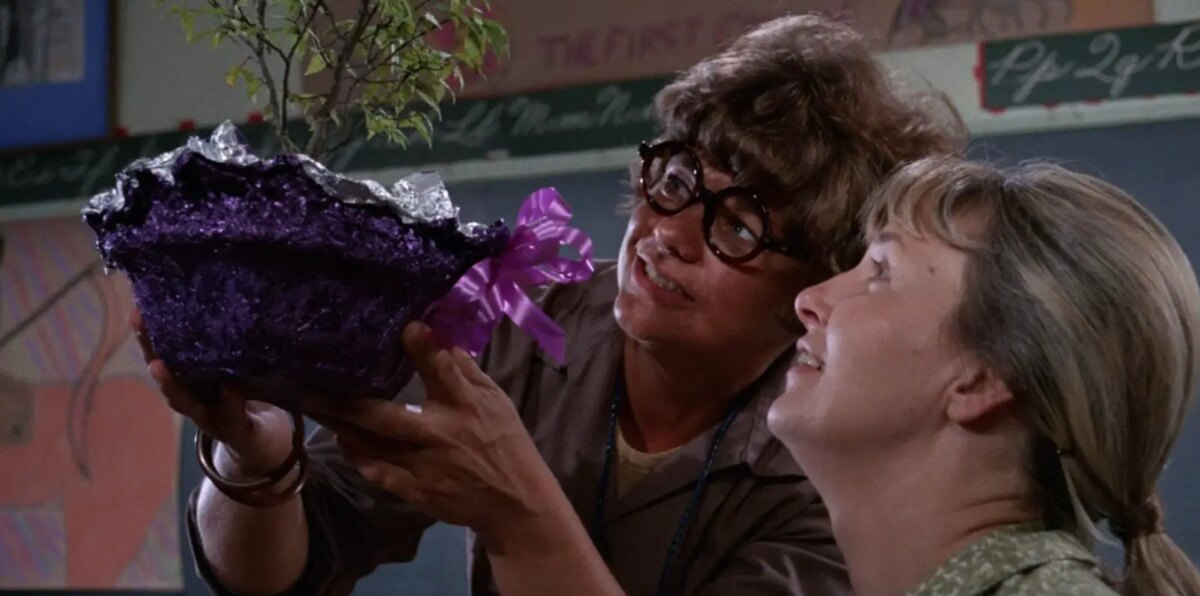
100 YEARS OF WARNER BROTHERS FILM REVIEW! For its time, the 1968 drama Rachel, Rachel, written by Stewart Stern, based on the novel A Jest of God by Margaret Laurence, was cutting-edge in its social nuances and character approach. The power team of Paul Newman directing his wife, star Joanne Woodward, makes the themes hit even harder. Woodward stars as Rachel Cameron, a small-town school teacher who finds sex and independence as a 30-something woman. This was hardly the norm then.
An introduction of Rachel, Rachel by Ethan Hawke for TMC’s Warner Brothers centennial celebration sheds much light on how it has been restored and honored. Hawke describes Newman as built like a watch with incredible discipline. Newman had just finished Butch Cassidy & the Sundance Kid, and this was his foray into producing and directing an independent film as an artist. It shows. The planned and carefully executed camera work and low-angled close-ups zero in on a controlled sense of character. The cinematography adds to the underlying torture that Rachel and those around her keep from escaping.
Rachel lives and cares for her widowed mother (Kate Harrington) in an apartment above the funeral home her father owned and operated. Living memories provide a sense of being surrounded by death or, in Rachel’s case, a need for a resurrection, an awakening. She dotes on her mother, who cannot stand Rachel’s desire to be independent — another control mechanism that disintegrates.
“Calla convinces Rachel to attend a revival meeting because she needs love.”
It is summer. There is little excitement in the quiet Connecticut town where Rachel has been teaching schoolchildren until you go beneath the surface and are introduced to the brewing societal changes. Her colleague and best friend Calla (Estelle Parsons) is also single and the most compelling character. She has excellent eyewear, laughter, and energy. Calla convinces Rachel to attend a revival meeting because she needs love. It turns out so does Calla, as she ends up kissing Rachel, which is a surprise considering how conservative Rachel, Rachel had been executed up to that moment. Yet, this pivotal scene prepares viewers for what’s to come and adds to Rachel’s desire to release herself from her world and propel herself into another.
Without flaw, Woodward delivers her character’s need for change with authenticity and a sense of progression. Her romantic interlude with a hunky old schoolmate, Nick (James Olson), is awkward and uncomfortable until Rachel embraces her sexual needs. Unfortunately, due to her inexperience, much like a teenager, she confuses sex for love.
However, more new experiences ensue, like getting drunk with the mortician, a pregnancy scare that ends up being a cyst and leaving for Oregon. Each provides the groundwork for Rachel’s independence and adult life finally happening. Although her mother joins her in Oregon, Rachel now defines rules that her mother must abide by. As the film ends, a woman in flowing, colorful clothes and a child roam around the Oregon coast, offering a symbolic ending of freedom, especially in the 1960s.
Rachel, Rachel received several Academy Award nominations after its release. It was up for Best Picture, Best Adapted Screenplay, Best Actress, and Best Supporting Actress, and both Newman and Woodward won Golden Globes. The film’s moment in time is one of note, especially as a story that grows from the inside out.














